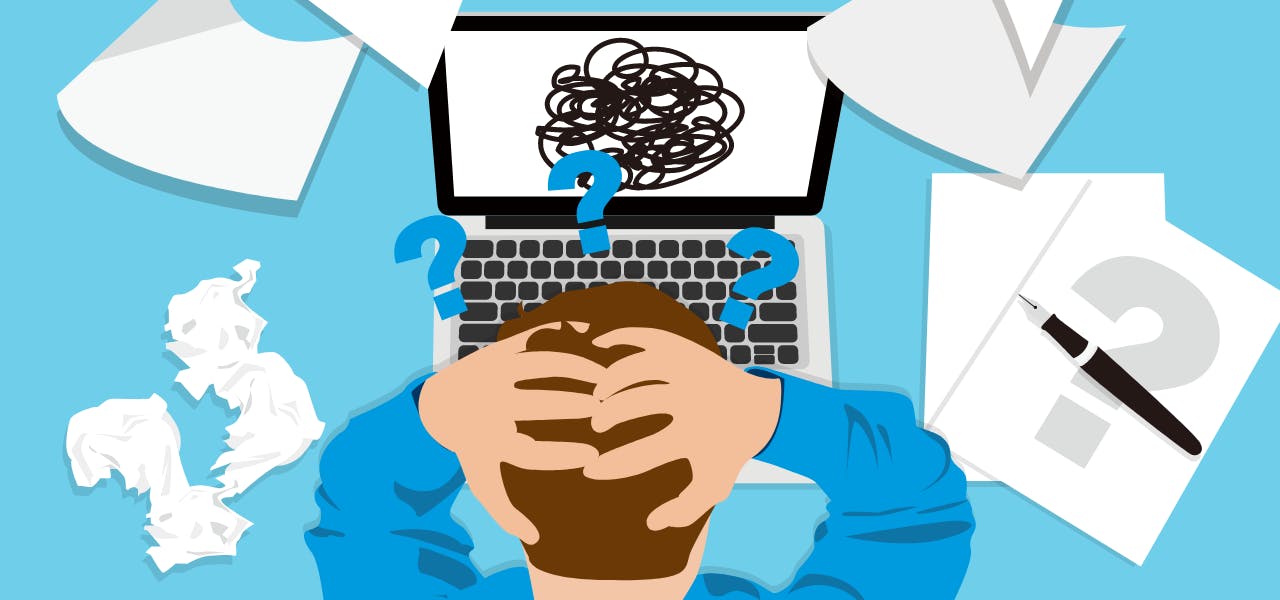Having a passion for research and being a good writer doesn’t always go hand in hand, but when you’re in the field of academia, the importance of writing a strong research paper can’t be avoided. The ability to compile your thoughts coherently and apply them to words on paper is crucial if you’re planning to be a researcher of any kind.
Sometimes, like with all writing, those thoughts come naturally with a flow and rhythm that makes it easy to put them on paper or the computer screen. Other times, though, you hit the proverbial wall and get stuck. This ‘writer’s block’ is common no matter how skilled of a writer you are, but it can be stressful both physically and mentally when a lot is riding on your ability to get past the block. However, there are some strategies that can help you address your writer’s block and get past it in your academic setting so you can move on with your work.
What is Writer’s Block?
If you’re stuck and unable to move forward on your writing task because you’re distracted, that’s not writer’s block. It’s more likely that you just need to find a few ways to focus a little better, take out some distractions, or go ahead and take care of what’s causing you to lose your current focus. But writer’s block is a common phenomenon that many people deal with at least once in their writing career.
Rather than an inability to focus due to distractions, writer’s block is a serious and often overwhelming feeling in which you as the writer experiences the sensation of being mired where you are with no clear direction of where you’re going and how to get there.
You’re unable to write any new thoughts, and you end up spinning your wheels and wasting time before a deadline, which mires you deeper into the mud of the block, similar to the way you’d visualize a truck spinning its wheels while stuck deep in a muddy hole.
The more you spin, the more you worry. The more you worry, the deeper the block gets, until you finally find a strategy to get you out of it. Until you get there, though, writer’s block can have serious consequences on your health.
The Consequences of Writer’s Block on Your Health
Writer’s block can be caused because of your health, or it can take a toll on your health. It’s a chicken-or-the-egg type of thing for some people and you need to be able to pinpoint the reason behind your block to be able to address it. For some people, the cause could be one or more of these:
● Too much pressure on yourself for high expectations, resulting in overstress and worry that ends up self-fulfilling in your inability to write
● Lack of quality sleep causing you to be unable to think clearly, resulting in anxiety that perpetuates the lack of sleep
● Procrastinating because you think you’ll be able to squeeze in the work in a short amount of time, adding stress to your brain when you realize it’s harder than you thought
● Poor health habits, such as not enough exercise or an unhealthy diet, culminating in your body and brain’s inability to think and function optimally
These are all consequences of and reasons for writer’s block that must be addressed before you move on to deciding on a strategy to help get you past the wall.
Strategies to Address and Move Past Your Block
Once you have pinpointed the likely culprit behind your writer’s block, you can choose a strategy to attempt to overcome it. Some of the most effective and recommended strategies for writer’s block removal include:
● Getting some exercise and fresh air. This stimulates your brain and body and gives you a chance to step back from your writing to take a second look later.
● Jumping to another section of the paper. It doesn’t matter where you move forward on as long as you’re moving forward. If you’re stuck on the introduction, for instance, move on to something that flows easier for you and return to the intro when you’re feeling less pressured.
● Turning off distractions. Social media, texts, TV, and other distractions are in the background of our minds. Cut those potential distractions out entirely so your brain knows it’s okay to focus on the work in front of you.
● Giving yourself enough time to have breaks and blocks. If time is crunched, you feel pressured to squeeze in productivity for every minute. It’s okay to break for a few minutes to regroup and come back to your work. Sometimes, that’s actually the best way to get more done in less time.
Whatever you have to do to get past your current block, as long as it’s productive and good for your health, is a good strategy to use. Letting yourself stay stuck in the block and stress your body further is the last thing you should do, however. Address the problem, pinpoint its source, and move on.
